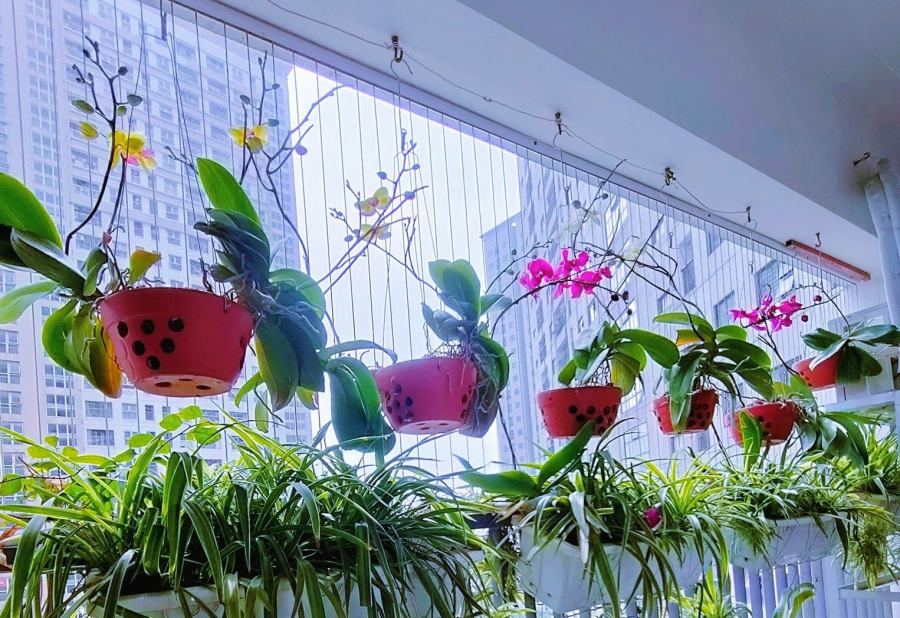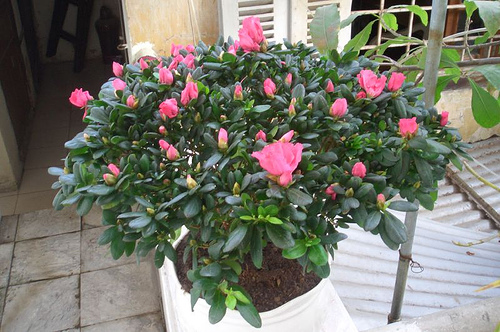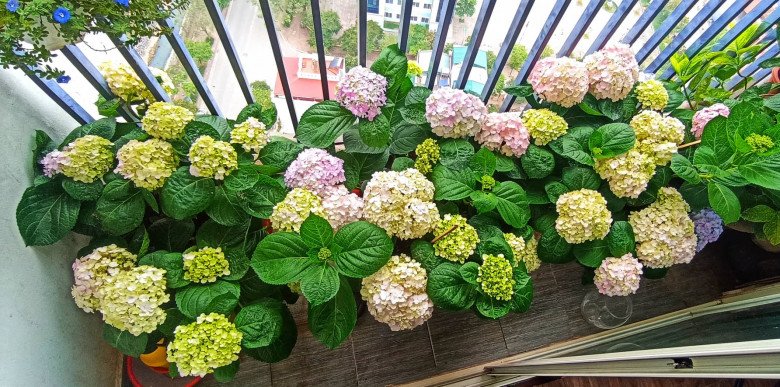Many flower enthusiasts adore adorning their balconies with vibrant blooms. Indeed, flowers not only enhance the aesthetic appeal but also create a soothing and pleasant ambiance.
However, it is important to note that not all flowers and ornamental plants are suitable for balcony gardens, especially in enclosed spaces. Here is a list of six types of flowers that you should avoid planting on your balcony:
Orchids
Orchids exude an air of elegance and sophistication, and they are considered one of the four noble plants in the floral kingdom. Despite their seemingly simple appearance, orchids captivate with their graceful blooms and enchanting fragrance. For these reasons, many are drawn to growing orchids indoors, even though they are reputed to be demanding plants.
Orchids, however, have stringent requirements when it comes to their living conditions. They thrive in well-ventilated areas but also demand high humidity. In an enclosed balcony without adequate air circulation, the humid environment can foster the growth of pests and diseases, leading to root rot.
Thus, if your balcony lacks ventilation, it is best to refrain from growing orchids, as they will struggle to flourish. In such a scenario, orchids will occupy space without adding value to your balcony garden.

Avoid orchids if your balcony lacks ventilation
Begonia
Begonias, also known as thu hải đường, boast vibrant and long-lasting blooms, with popular varieties such as Begonia Bốn Mùa, Begonia Rieger, and Begonia Trout.
However, begonias are particular about ventilation, lighting, and humidity levels. Insufficient air circulation and damp soil after watering can lead to root rot. Additionally, inadequate ventilation and limited light exposure hinder the plant’s stable growth, resulting in leaf yellowing and drop. Under these conditions, the plant also becomes more susceptible to pests and diseases.
Enkianthus Campanulatus
Enkianthus Campanulatus, commonly known as đỗ quyên, captivates with its elegant and luxurious blooms. However, planting this beauty on an enclosed balcony is ill-advised. Enkianthus Campanulatus thrives in well-ventilated areas and slightly acidic soil. Failing to meet these requirements can lead to leaf yellowing and drop, and the plant may even wither and die.
If your balcony features operable windows that allow for air circulation and ample sunlight, it could be an ideal spot for growing Enkianthus Campanulatus.

Enkianthus Campanulatus enchants with its elegant beauty
Tulips
Tulips exude nobility and elegance, coupled with a touch of charm. It’s no wonder that many are tempted to cultivate these flowers on their balconies. When tulips are in full bloom, you can cut them and display them indoors, adding a striking accent to your living space.
However, growing tulips on a balcony is not without risks. Both the fragrance of the flowers and the plant’s parts, including roots, stems, and leaves, contain toxic substances. In an enclosed environment, inhaling the scent of tulips for more than two hours may cause dizziness, nausea, and other unpleasant symptoms.
Hydrangeas
Hydrangeas, or hoa cẩm tú cầu, thrive in cool environments and shy away from harsh sunlight. For this reason, they are well-suited for north-facing balconies. Conversely, balconies facing east, west, or south are less than ideal, as direct sunlight can harm the plants. Prolonged exposure to intense sunlight causes the leaves to wither, diminishing the plant’s vigor and impeding its growth.
Additionally, hydrangeas favor well-ventilated areas and require moist soil for optimal growth. In the absence of adequate ventilation, particularly when temperatures and humidity are high, the plants become susceptible to diseases and insect infestations.

Hydrangeas thrive in well-ventilated spaces
Roses
Roses are revered as the queens of flowers, renowned for their graceful, majestic, and vibrant blooms. The diverse array of rose varieties, each with its unique charm, has captivated many, inspiring the creation of exquisite rose gardens on balconies.
Nevertheless, if your balcony is an enclosed space, it is inadvisable to cultivate roses. Additionally, north-facing balconies are not ideal for these flowers. Roses flourish in well-ventilated environments; in stuffy conditions, coupled with high temperatures and humidity, they become susceptible to diseases and insect pests.
Moreover, roses are prone to various pests and diseases, often requiring the intervention of pesticides, which may have negative implications for human health.
































